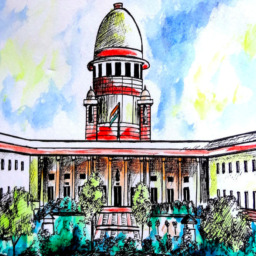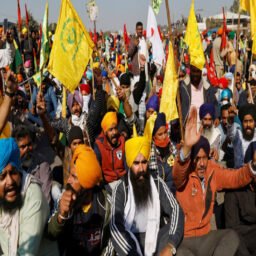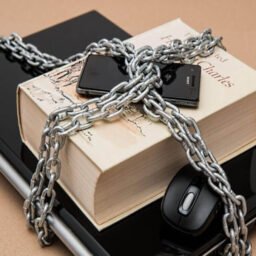Free Legal Aid is a torchbearer for needy individuals who can’t bear the costs involved in legal proceedings. It is legitimate help given free to destitute individuals in administrative, judicial as well as quasi-judicial proceedings and also includes basic consultation concerning legal issues. In the words of Hon’ble Justice P.N. Bhagwati, legal aid allows poor and needy people to access the justice delivery framework, with the goal being to not let obliviousness and poverty prevent such people from looking for justice.[1]
Legal Provisions regarding Free Legal Aid
Provision for free legal aid is for those poor and marginalized individuals who can’t bear the cost of availing services of lawyers for representing them in any proceeding in any Authority, Court or Tribunal.
In 1976, taking into purview the requirement for giving free legal aid services, such provision was added in Article 39A by the 42nd Constitutional Amendment making it a legal right. Thus, the State needs to guarantee the equivalent chance of getting justice to everybody by giving free legal aid to the needy. It is also said that as the Preamble to Constitution of India ensures justice and equality, henceforth, for enforcing it, the right to legal aid has been said to be a fundamental right inherent in Article 21.
Indeed, the Code of Criminal Procedure, 1973 gives this right to financially weak or poverty-stricken accused in session trials.[2] In Civil Cases, such aid can be availed by a reduction in the expenses payable by indigent appellants.[3]
Such free legal services are as of now headed by the National Legal Services Authority (NALSA) and governed by Legal Services Authorities Act, 1987. The Act has two significant goals, i.e., to ensure that there is equality by giving free legal aid to destitute and needy segments of our nation and to guarantee that no one is denied justice because of financial constraints.
Section 12 of the LAS Act provides that persons qualified for availing free legal aid are: members of SC/ST, victims of Human trafficking and beggar, women and children, disabled persons, victims of natural disasters, persons in custody and those working in industries.[4]
Free Legal Aid might take into its purview the following:
- Availability of advocate for defending in legal proceedings
- Preparation of pleadings, appeal and so forth
- Drafting of legal documents
- Supply of authenticated copies of orders, judgments and such related legal documents
- Payment of court fees, witnesses’ expenses and any such remaining charges payable
- Aid and advice to the beneficiaries under any government welfare schemes and statutes
- To ensure equity in any other way possible.
Role of Judiciary
The underlying foundations of legal aid have been conceived through the above-said provisions, yet the judiciary was additionally extremely vocal with regards to its significance during the 1980s.
The case of Hussainara Khatoon v. Home Secretary, State of Bihar[5] uncovered the helpless state of the justice delivery framework in the State of Bihar. It was found that the accused were forcefully sentenced and were given harsher punishment than prescribed under law. Further, many undertrial detainees were constrained in prisons. This state arose because the convicted individuals were unable to hire lawyers to represent them. Justice P.N. Bhagwati thus, held that the right to free legal aid is fundamental for accused persons and is within the purview of Articles 21 and 39A of the Indian Constitution.
In Khatri v. State of Bihar[6], it was concluded that Session Judges must mandatorily give information about the right to avail free legal aid to those accused persons who because of destitution, won’t be in the capacity to hire a lawyer.
The Pandemic and Legal Aid in India
Justice must not be denied, but the lockdown resulted in the courts working in online mode. In such situations, justice administration is affordable and accessible only to the essentially literate people. Different fundamental rights were being abused, however, to challenge them, the assistance of advocates and courts is required, which was excluded from essential activities for the working of the state at beginning of the Covid-19 pandemic.[7]
The pandemic has seriously impacted poor people and consequently ensuring justice for them is additionally at stake. NALSA has a tremendous job to help such individuals. Yet, free legal services have been compromised, in such times and the budget for the law and justice ministry and particularly for the NALSA is witnessing a descending pattern. In 2018, the budget allocated to NALSA to perform its functions was 150 crores, in the year 2019, it tumbled to 140 crores and subsequently to just 100 crores in 2020-2021.[8] The population is on an ascent as is the poverty, however, the fund allotment to one of the main functionaries of the state which guarantees justice to needy and poor people is contracting.
Yet at the same time, NALSA has done a great job in helping individuals with free legal aid even in the lockdown. Whether for appointing a remand lawyer or simple legal consultation, NALSA guaranteed this significant right to free legal aid to the recipients during the lockdown as well.
The statistics depict that around 33 e-Lok Adalats were conducted in 17 States where around 3.00 lakh cases were disposed of during the lockdown bringing about a settlement of Rs2918 crores.[9] This signifies that even amid lockdown, legal aid services were not denied to the needy, however, one may ponder that not all of the statics show the genuine picture.
Following are a few issues that I feel are a hindrance to the working of the legal aid services system: –
- Budget Constraints
- Ineffectiveness of Government Machinery in carrying out such legal services
- The narrow scope of offering legal assistance
- Lack of interest in Panel Lawyers in Legal Aid Cases
Current status
India being a poverty-stricken nation, several rights of citizens thus, get compromised. Free legal aid is a rescuer for the people who are unable to hire a lawyer due to their financial constraints. With time, there has been a change in judicial point of view from perceiving legal aid as a right of the accused to everyone’s fundamental right. Presently, Parliament has also given it vital legal backing.
Lockdown brought several difficulties along with it and for some, arranging even one meal a day was an extravagance. Alongside the nonrecognition of legal aid services as a part of essentials, justice turned into a privilege. While many would have availed the benefit of legal aid, many stayed unaided. The prime objective would be achieved only when if each penniless and needy individual is aware and can be benefitted from the fundamental right to legal aid. Thus, there are a few upgrades required to fill such lacunas in the legal aid framework.
Conclusion
Reginald Heber Smith has perfectly written in his book ‘Justice and the Poor’ that if there will be unequal admittance to law, then this framework won’t just deny the poor people of their main protection, but in addition to it, will place in the hands of oppressors, the utmost ruthless and powerful weapon that would have ever been invented.[10]
Henceforth, to ensure effective legal aid development in our nation, the State with the assistance of the NALSA, ought to invest carefully in legal education and create awareness regarding the right to free legal aid. To ensure ‘equal justice to all’ must form the government’s main objective. The respectable legal profession gets defeated when the sole motive is to monetize it without aiding society. Legal practitioners should step ahead to assist the citizens by upholding their rights not only as a charitable activity, however, as their obligation towards society. On the whole, NALSA has endeavoured to maintain the constitutional goals, yet better execution of its activities is a grave issue.
Author(s) Name: Khushi Chopra (UILS, Panjab University, Chandigarh)
References:
[1] Chairman Mr. P.N. Bhagwati, Speaking through the Legal Aid Committee 1971 formed for Legal Aid by the State of Gujarat
[2] The Code of Criminal Procedure, 1973 S.304
[3] The Court Fees Act, 1870 S.35
[4] The Legal Aid Services Authorities Act, 1987 S.12
[5] 1979 AIR 1369
[6] 1981 SCC (1) 627
[7] G.S. Bajpayi & Ankit Kaushik, Unlocking Justice in the Lockdown, The Hindu (2020), Unlocking justice in the lockdown – The Hindu (last visited Nov 24, 2021)
[8] Ministry of Law and Justice, Demands for Grants 2021-22, Law and Justice, 232-234 (2021)
[9] Ministry of Law and Justice, Department of Justice: Year End Review- 2020, Press Information Bureau Government of India (2020)
[10] Reginald Heber Smith, Justice and the Poor (Nabu Press 2011)
















